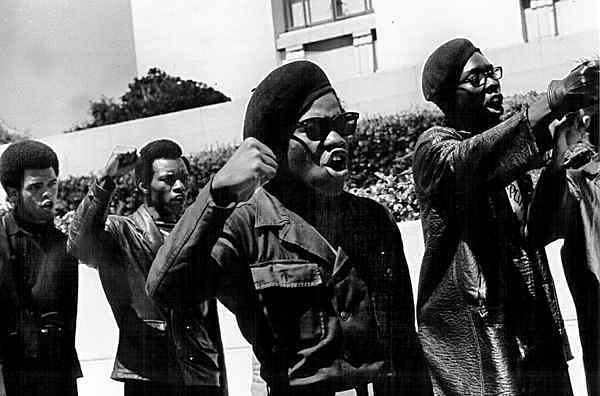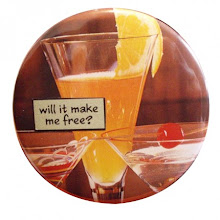I'd like to be able to give you my sophisticated analysis of the Palestinian/Israeli conflict. The truth is, I'm vastly underinformed about the historical, political, economic and sociological details — not for lack of information, but because I don't trust my ability to evaluate a lot of the information I have.
What I do know is that when it comes to the P/I conflict, my political priorities are in roughly the same place that they always are. I tend to be moved by arguments that appeal to individual rights, especially when they focus on the rights of the least-advantaged members of society, and especially especially when they focus on making sure that the least-advantaged possess the preconditions for secure cultural identity and political participation.
What I am not moved by are arguments that appeal to religious prerogative, ancient-historical entitlement, military security, economic efficiency, and personal safety for social elites. (At least, not when individual rights are at stake.) I won't deny that these blinders of mine are problematic. It's easy for me to blow off economic arguments; my income won't dry up if the market takes a hit. To blow off military security, given that I will never be called to serve in the armed forces [more on this another time]. To blow off terrorist attacks when I spent the spring of 2002 safe in St. Louis. Still....
My senior year in high school, I read A People's History of the United States in a US history class. The chapter on the Civil Rights Movement of the 1950s and 60s ("Or Does It Explode?") changed the way I thought about politics. No more a glassy-eyed adherent to an ideology of nonviolence and conciliation, I found myself much more sympathetic to social movements that employed violence.
 I had wanted a civil rights narrative centered on a figure with whom I identified: the Caring White Person. I wanted to believe that the movement succeeded when the tender hearts of White People Like Me were roused by photographs of nonthreatening protesters — Black students who reached across the racial divide and got on the wrong side of the fire hose to testify their faith in our mutual humanity. I did not want rights to have been won by angry rhetoricians (mean!) or urban rioters (scary!). Frankly, I didn't want rights to have been won by Black activists at all. I wanted those rights to have been conferred by Benevolent Whites.
I had wanted a civil rights narrative centered on a figure with whom I identified: the Caring White Person. I wanted to believe that the movement succeeded when the tender hearts of White People Like Me were roused by photographs of nonthreatening protesters — Black students who reached across the racial divide and got on the wrong side of the fire hose to testify their faith in our mutual humanity. I did not want rights to have been won by angry rhetoricians (mean!) or urban rioters (scary!). Frankly, I didn't want rights to have been won by Black activists at all. I wanted those rights to have been conferred by Benevolent Whites.
Zinn's book knocked a little bit of sense into my narcissistic head. It got me thinking that maybe it was sometimes important for people to take power, rather than just ask politely and wait to receive it. With all due respect to the nonviolent component of the movement, Zinn directed my eyes beyond MLK and Rosa Parks, to Malcolm X and Huey Newton.
The analogy between the American Civil Rights Movement and the P/I conflict is easy to overstate. The histories are different, the cultures are different, and the demands are different; the violence of Palestinian militants needs to be understood on its own terms, and not merely as a Middle Eastern analogue to Black Power. But what I'm trying to say is this: I used to think that non-state-sanctioned violence was so unambiguously immoral that it settled the case. I thought that the government should ensure, at any cost, that buses never explode.
I don't think like that anymore. I'm realizing more and more that feelings of entitlement to security and my confidence that the-authorities-are-our-friends come easy for me because US racism works in my favor. That's why security-based political arguments generally leave me cold, and probably should leave me still colder.
 My understanding of the P/I conflict guides my concern to the Palestinian side. I do not know enough to make any strong claims about how, when, or precisely where the Palestinian state should be established, but I believe that the answers to those questions depend on the what and why. I am convinced that the fundamental issue here is the Palestinians' need to be free from oppression. In this context, the Israelis' need to be safe from violence takes on only a reflected, pragmatic importance.
My understanding of the P/I conflict guides my concern to the Palestinian side. I do not know enough to make any strong claims about how, when, or precisely where the Palestinian state should be established, but I believe that the answers to those questions depend on the what and why. I am convinced that the fundamental issue here is the Palestinians' need to be free from oppression. In this context, the Israelis' need to be safe from violence takes on only a reflected, pragmatic importance.And yet, despite all of that, I consider myself a Zionist? More tomorrow!




One disturbing facet of the American press on P/I is the application of terms like 'terrorism' to certain Palestinian actions like shooting at soldiers. I have seen this rhetorical smoke-and-mirrors performed in America and it leaves me quite cold. I don't feel very much at all in shooting between a uniformed soldier and an un-uniformed gun-toter.
ReplyDeleteNone of this changes my condemnation of true terrorism, of course, though I do wonder about the same American commentators who can't distinguish guerrilla warfare from terrorism.